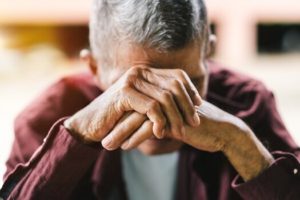
With so much emphasis in previous years on taking care of your physical health, mental health fell by the wayside. And in older generations, it was even less common to discuss your mental health needs. It’s evident that more and more elderly people are struggling with their mental health. The signs and symptoms are often overlooked as reactions to medication, dementia and so much more. It’s important to look at the most common mental health issues and the unique ways that they impact the elderly. While it may be more difficult for older adults to recognize they need help, there are numerous resources out there to help them with their mental health needs.
Depression
Depression is a big one because it can lead to suicidal thoughts and eventually taking one’s own life. In the elderly, there are some distinct differences between the onset of depression and dementia, although these symptoms are often missed because of their similarity. In depression, people will experience a very sudden decline whereas symptoms of dementia will come on more gradually. People with depression can still recall the correct dates, times, and places, whereas those with dementia will be more confused.
Depression in the elderly comes with problems focusing on tasks and makes them less likely to exercise daily. This may lead to a decline in caring for normal household and personal responsibilities. Isolation can lead to depression. This fact has become even more evident in recent years. The less contact an elderly person has with others, the more likely they are to become depressed. They may no longer want to eat or enjoy their typical activities if they are feeling depressed.
Anxiety
Many mental health conditions co-exist. Too much anxiety can lead to a sense of hopelessness. In the elderly, you may notice that they don’t want to go out and drive anymore or that they’d prefer to order takeout instead of eating inside a restaurant. While some issues like declining vision can also impact whether someone will want to drive or not, if their vision is fine, they may be experiencing some anxiety.
Anxiety can lead to overeating. It can also cause dizziness, shaking, and trouble breathing. These symptoms can often be mistaken for things like stroke, heart problems, and even dementia. When older people feel anxious, they become more at risk for falling and severely injuring themselves. Doctors often prescribe hydroxyzine for anxiety in their elderly patients or other anti-anxiety medications to alleviate the symptoms they are experiencing.
Obsessive-Compulsive Disorders
Obsessive-compulsive disorders are a wide range of issues where people struggle to function in their daily tasks because of their compulsions. When the elderly experience OCD it can lead to perfectionism in where their belongings get put every day. They can experience a wide range of emotions if their things are not put back in a certain way. OCD can cause people to overly engage in hygiene activities like more frequent handwashing than necessary. It can cause people to eventually start hoarding certain items. When the elderly become anxious, fearful, and experience OCD, it can cause them to make irrational decisions about their living arrangements and how they care for themselves.
Bipolar Disorders
The elderly can experience late onset of bipolar disorders. While it would be great to think that they would already know they have this mental health condition, like many others, it can be masked until the progression gets to be too much. When an elderly person has this disorder they will have extreme mood swings.
This can include when they have manic episodes that leave them restless, making impulsive decisions, heightened moods, and even delusions, and an inability to concentrate. These periods will be followed by extreme sadness, crying, weight gain, and even suicidal ideations. Elderly people with bipolar disorders can often be mistaken for having dementia as some of the symptoms overlap. The only to determine if dementia is a factor or not would be to have in-depth medical exams that look at all aspects of the patient’s current health and health history.
When the elderly suffer from mental health problems, it is critical to seek help. If they won’t do it themselves, then the caregiver should inform the proper medical professionals. This is for their safety and the safety of those around them.